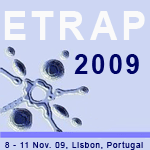
Nuclear energy and environmental protection: compatible or mutually exclusive?
On 27 January, Corinne Lepage, a former French environment minister and Vice President of the French centrist party “MODEM,” wrote an article in the monthly newsletter of the SFEN, Bulletin SFEN. The central thesis of the article is that the building of more EPR reactors in France is diametrically opposed not only to the goals of France’s environmental “Grenelle” (the national environmental action plan that was agreed upon following a lengthy stakeholder consultation process), but also to the EU’s environmental goals as a whole. Consequently, Mrs. Lepage argues, further nuclear new build in France would spell disaster for the country’s environment and that of the EU.
On 5 February, the SFEN published a response to Mrs. Lepage’s article in the French economic and business daily La Tribune. An adapted version of the article also featured in the February edition of Bulletin SFEN. ENS NEWS contacted SFEN and asked permission to publish the Bulletin SFEN’s version of the article in its spring edition, thereby sharing the thrust and counter-thrust of the debate with its readers. Here is a translation of the article.
The environmental "Grenelle" and nuclear
energy are compatible
Is the environmental Grenelle withering on the vine before it has even had a chance to bear fruit? Yes it is, according to Corinne Lepage in an article published in a recent edition of the Bulletin SFEN’s “Points of View” column. The article is reminiscent of the prosecution’s final summing up in a court case. Of course, the guilty party is nuclear energy, the obsessional target of the ecologist movement in France. According to the former French environment minister, the announced construction of two more EPR reactors (at Flamanville and Penly respectively), as well as a third one, “would signal the failure of policies aimed at encouraging energy efficiency and developing renewables; policies that were forged to meet the goals of both the environmental Grenelle and the European Union. By transforming France into one giant dustbin, this return to a position of nuclear dominance would threaten our agricultural sector, strangle at birth the development of wind and solar energy and condemn to death the eco-industries of the 21st century.”
And all this as a result of just two or three more nuclear reactors! Clearly, the guilt of the accused is too clear-cut to be true; the argument put forward by the prosecution a touch too caricatured to be convincing. It seems especially ill-conceived to claim that nuclear energy “goes against” the goals of the Grenelle and EU policy precisely because the opposite is true: nuclear energy actually supports their main goal - the fight against global warming. This fundamental objective outweighs all others because the overriding aim of energy efficiency and developing renewables is to reduce the CO2 emissions that cause global warming. By avoiding 8-10 million tones of CO2 every year, France’s EPRs will be the most efficient of all electricity generating units in the EU when it comes to combating the greenhouse effect. Let’s not forget that while nuclear energy has made France (together with Sweden) the least polluting of industrialised nations in terms of CO2 emissions, it also helps Europe to avoid around 700 million tonnes of CO2emissions per year (Europe emits 4 billion tones of CO2 per year). This total represents twice the target set by the Kyoto Protocol and is equivalent to the total amount of CO2emitted every year by all the cars on the EU’s roads!
The EU will have to renew half of its electricity generating network within the next 15 years due to their becoming obsolete and the majority of new installations will, unfortunately, be gas or coal-fired plants. So, the coming online of two or three EPRs would represent an extremely valuable compensatory contribution to the EU’s fundamental environmental goal of reducing its annual emissions of CO2 by 20% by the year 2020.
Mrs. Lepage is frightened that the EPRs will “increase the electricity supply.” She’s right, they will. And what could be more “normal” as the EPRs will help meet the moderate but real increase in energy demand that is forecast over the next decade. In terms of installed capacity, however, this vital contribution will remain inferior to the significant development programme that the public authorities have endorsed in favour of wind and solar energy (around 20,000 megawatts of capacity will be built by 2020) - a programme that will be completed by the construction or re-launch of fossil fuel-based units.
But looking beyond this scenario, the fundamental reason for building the new EPRs is to compensate for the forthcoming closure of France’s oldest reactors. Between 2017 - the date when the EPR at Penly will be operational - and 2020, 21 reactors (30% of the total fleet) could be closed down because they will have reached the maximum theoretical operational life span of 40 years. Renewable energies, even if operating at maximum capacity, will only be able to compensate for a minute part of this shortfall. The EPRs that are under construction or being planned are, therefore, fully justified. Everything points to the need to prepare for the construction of two or three extra units in the near future in order to avoid under-capacity of electricity in the 2020s. This would also help France avoid having to buy expensive kilowatt hours of electricity from abroad when it is well capable of exporting competitively priced electricity itself, at certain times of the year.
Far from transforming France into “a dustbin”, these few additional EPRs will maintain the strategic, economic and environmental equilibrium of a system of electricity production that represents for France, at a time of considerable global energy instability, a tremendous asset. This approach does not contradict the policy of energy efficiency that the Grenelle espouses. Nor does it undermine the development of renewables that, it is worth noting, benefit from extremely generous economic aid. Instead of looking at renewables and nuclear energy as implacable adversaries hell bent on destroying each other, it is high time, rejecting this dogmatic view of things, that we recognise that their complementarity can actually provide the most effective solutions to the energy challenge that France and the world is facing. A majority of politicians have come to the conclusion that supporting the development of renewables and the rebirth of nuclear in countries that fulfill the necessary conditions go hand in hand. Well-intentioned ecologists would do well to grasp this reality instead of looking at the energy problems of today and tomorrow through yesterday’s eyes.
|




